Welcome back again to another instalment of the Bit-Tech Modding Toolbox! Here we aim to build up a comprehensive list of tools that are useful for modding your PC, ranging from basic edits all the way through to ambitious scratch builds. This time we're building on the hand-abrasives section we covered earlier and taking a look at machine sanding.
What's in the toolbox so far?
- Drill Bits
- Heat Guns
- Tools for Marking Out
- Hand Operated Abrasives (Sandpaper and Files)
- Machine Operated Abrasives...
Machine Sanding
It's probably more relevant here than in most other sections, but this guide is most definitely not exhaustive. There's an unfathomable range of devices out there designed for sanding/finishing materials, from simple random orbital mouse sanders through to free-standing belt/disc/drum sanders. As such, I've decided to focus on the ones that I use in my workshop, which generally were picked for use with modding in mind. The same holds true for brands, you'll notice early on my preference for Festool, that's largely down to investing in that ecosystem already. If you go with another brand like Mirka, Bosch, DeWalt, etc. then it makes sense to use that ecosystem. If you ask me, pricing and local availability are important factors.
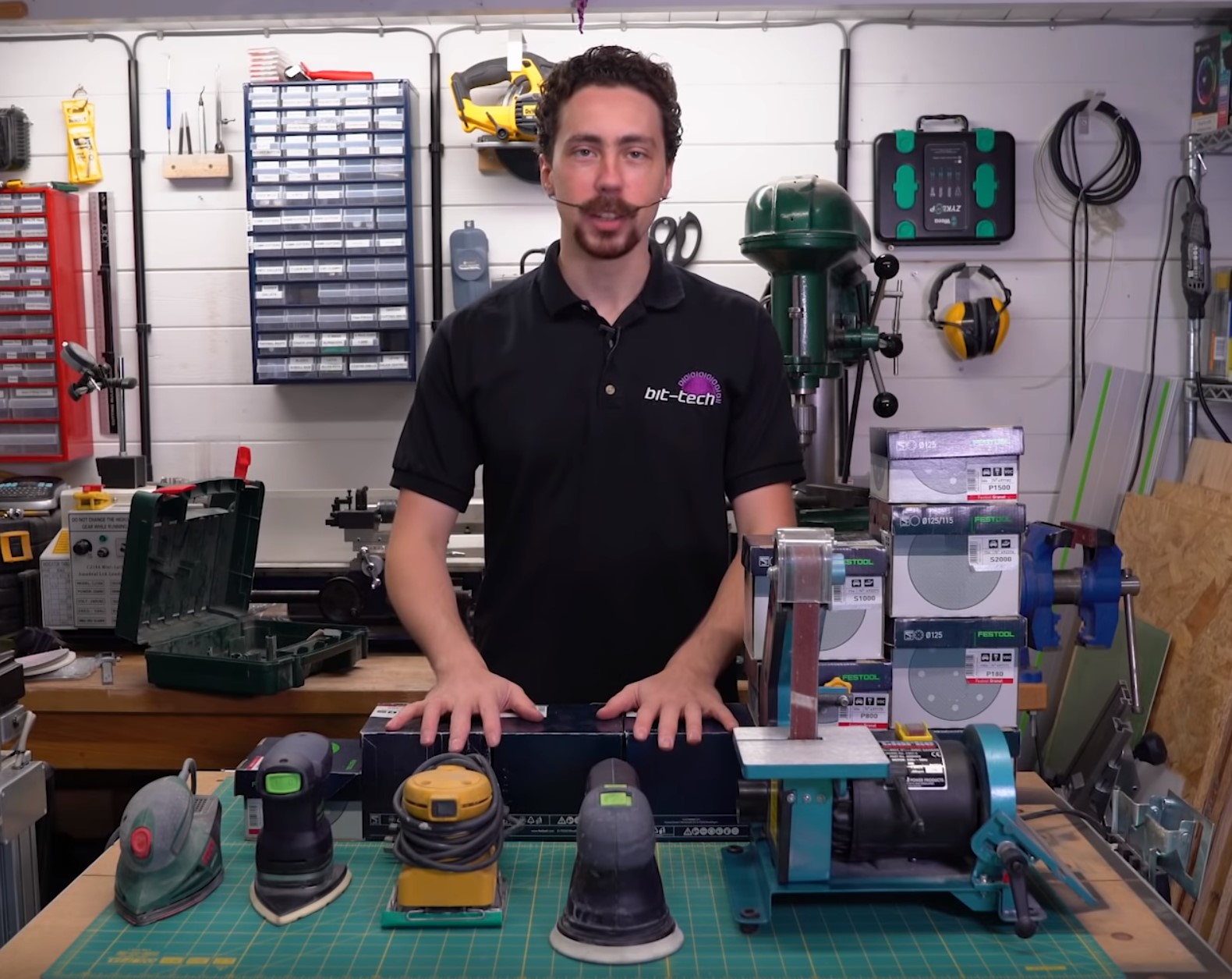
Where to begin?
If you're new to the whole area of using machine sanders, then a good place to start is with the simpler options, which includes working out what you're looking for in the product. If you've been doing everything by hand, you'll likely have noticed some areas that can become quite challenging; for me those were volume material removal and achieving an even finish on larger panels in harder materials.
I think material removal speaks for itself, because if you're doing all the work then it's simply going to take more time and be more tiring. For smaller jobs this isn't an issue, but if you have a lot of material to remove (say, you're flattening out a large piece of bondo on a panel) it's really worth considering. Not least because you save some effort, but often you'll be able to achieve better results, too. This leads nicely onto the second point about achieving good finishes. When sanding by hand, it's quite difficult to keep things even since you're often rocking back and forth and using your body weight to aid the abrasive. A machine can help enormously here as it removes some variables; it's doing the work so you can focus on making sure your pressure is even and you're in control.
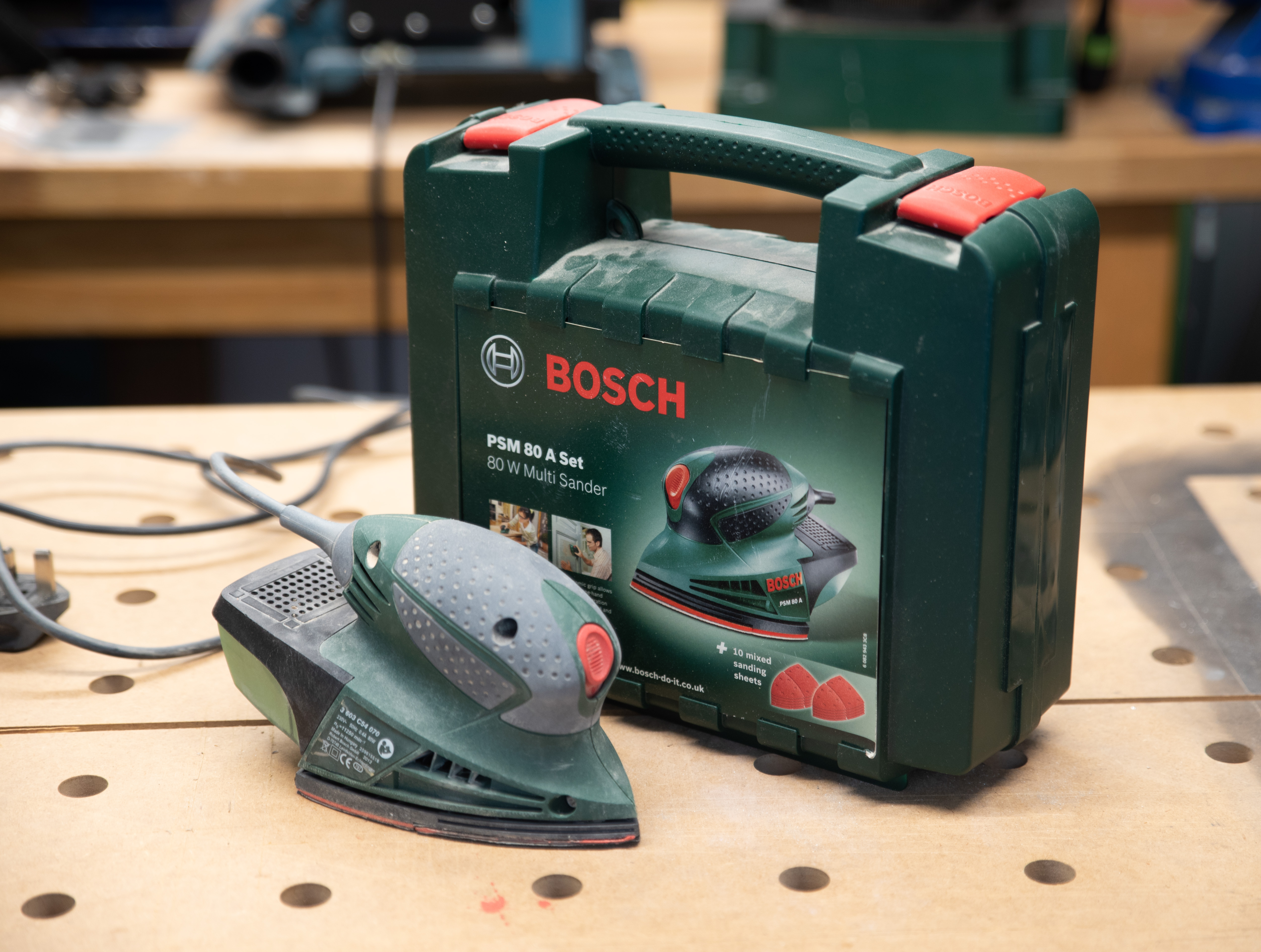
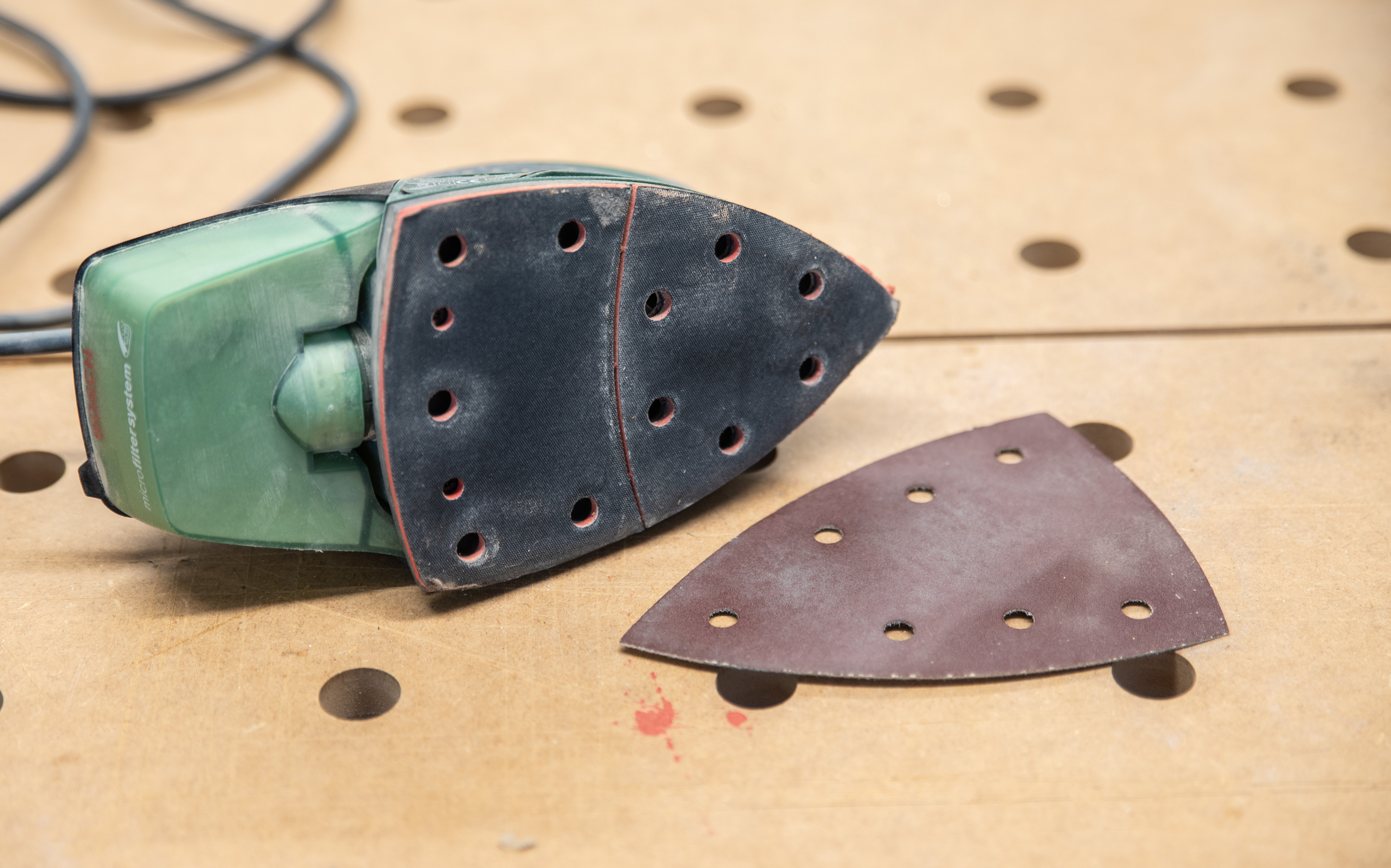
I would recommend any modder get a device like this Bosch mouse sander when starting out. They're affordable and very capable given their budget nature. They're great multi-taskers since they have a large delta-shaped pad, and this means you can use them for sanding larger panels as a well as interior corners. Delta-sander pads are widely available, too, so getting replacements is simple, and they also come in quite a range of grits. However, you'll find that most of the grits focus on the 80-240 range - these are very popular DIY grades, mostly for refinishing woods. I used to use the mouse sander up to the highest grit I had, then transition to finer wet-and-dry paper that I would do by hand. Alternatively, you can always look for higher grit cloths with a fuzzy back (to stick to the hook side on the sander) and then cut to size.
This particular sander comes in a little box for handy storage and it also has a limited form of dust management via a little container on the back. Of course, you can only use that feature if you buy pads with the same hole pattern that the sander uses. It's not bad, but the feature is pretty limited, dust will still get around, so it just helps reduce clogging a bit.
Adding some OOMPH to the mouse
I mentioned that the mouse sander has quite a convenient shape, so if you find yourself using it a fair bit it may be worth considering upgrading to a more powerful unit. That's what I did when faced with the prospect of sanding down a staircase (who says modding tools are only used for that, eh?), definitely a good move on that part. You gain a lot of convenient features when moving up the scale, namely proper dust extraction support and variable -speed settings. I'm a big fan of dust extraction and will be going into it in more detail later, because it's one of those things that's definitely worth considering should you see yourself using the tools quite often. Variable power simply provides more options, some materials and papers respond better to faster/slower speeds so it gives you more control. An additional feature I got with this one is a modular power cable, plus the ability to replace individual parts of the device should they wear out (looking at you, Velcro pads).

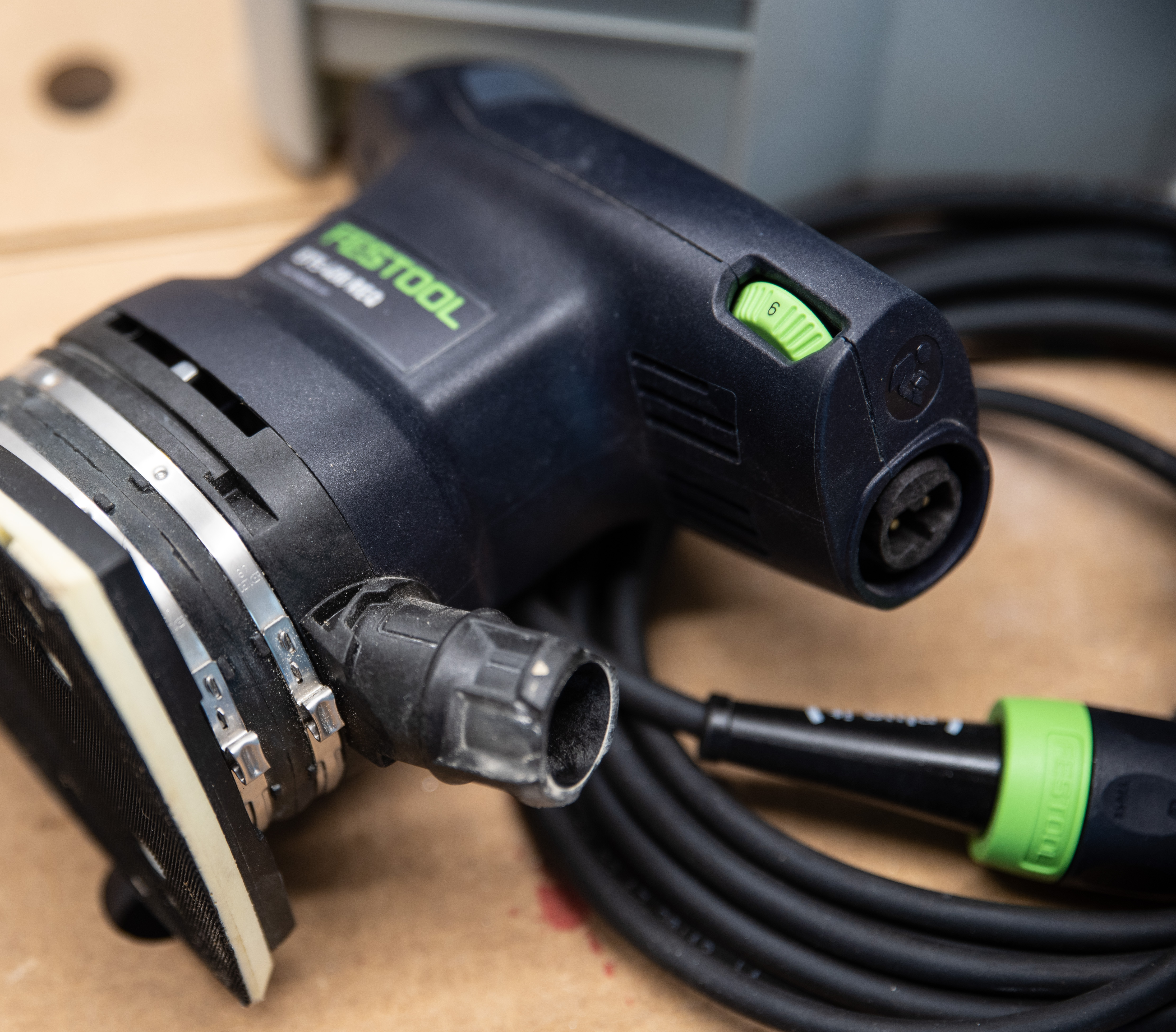
The modular power cable is one of those features that I don't think seems as useful on the spec sheet as it really is. It makes packing the machine away much simpler, plus by being able to use the same cable on multiple machines you don't have things trailing all around on the floor or table, etc. It's a quality-of-life improvement, really.
For larger work
It's honestly not at all unreasonable to consider options for larger pieces, and you may want to sand down large side panels in preparation for painting or finishing in other ways for instance. Again, a lot of it comes down to volume; if you're doing this sort of thing often it makes sense to invest into the tools, if not I would likely just stick with the mouse sander from earlier.
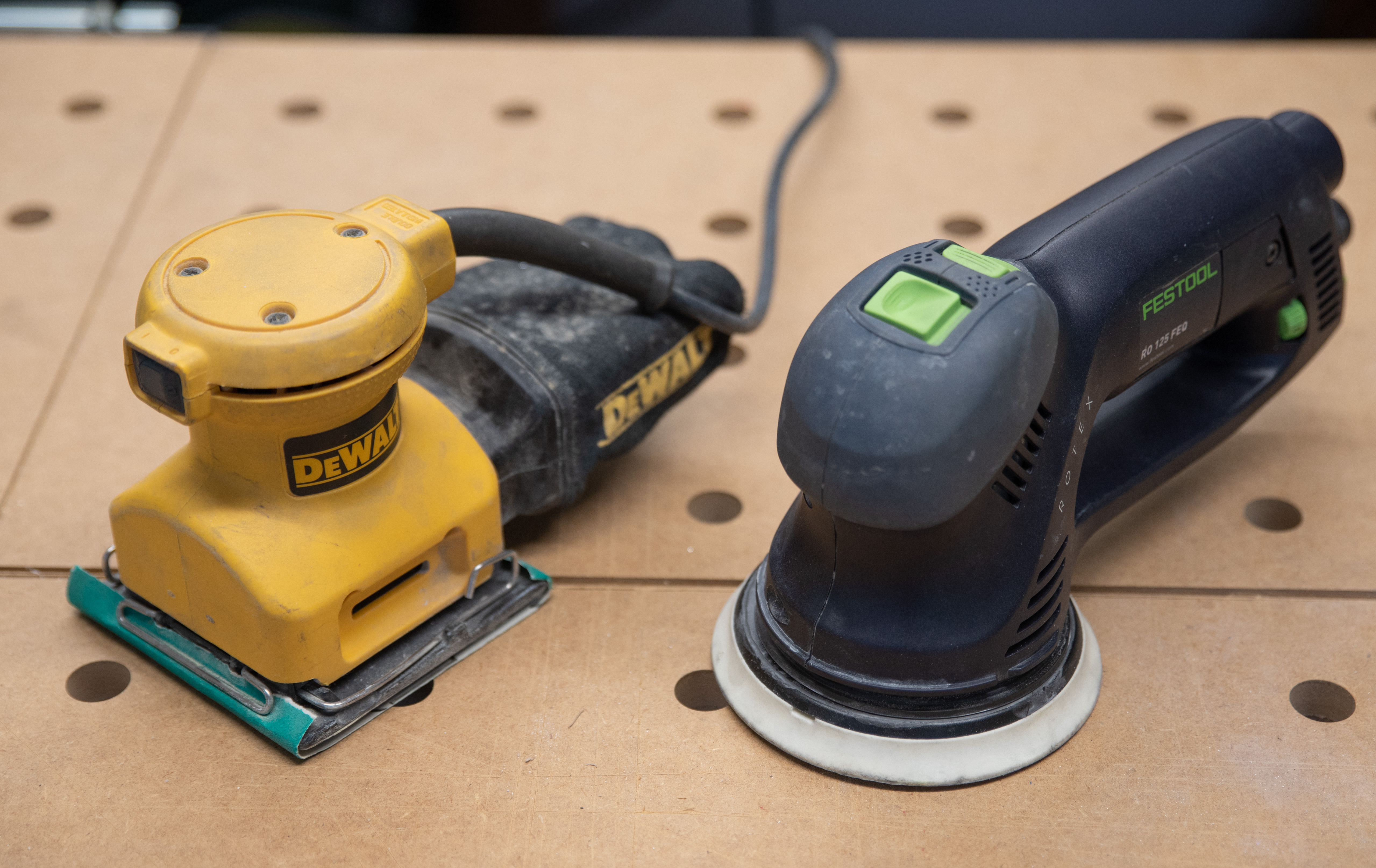
Random orbital sanders come in a large number of flavours. The one I have here is an older DeWalt model that I used to use quite a bit. The material-removal rate on this thing is pretty terrible, if I'm honest, perhaps when new it was better but I never really thought about it much. Where it does shine though is in how you can use whichever paper you want on it. Whilst the dust extraction does require you to use pads with a matching hole pattern, this sander features clamps that hold the paper in place. That means you can buy standard sandpaper rolls or sheets and simply cut/tear them to size. This not only makes a sander like this cheap to run, but you gain a lot of options as you can use papers/cloths of basically any available grit size. This also works particularly well for sanding materials that like to clog up papers, such as woods finished with bees wax.
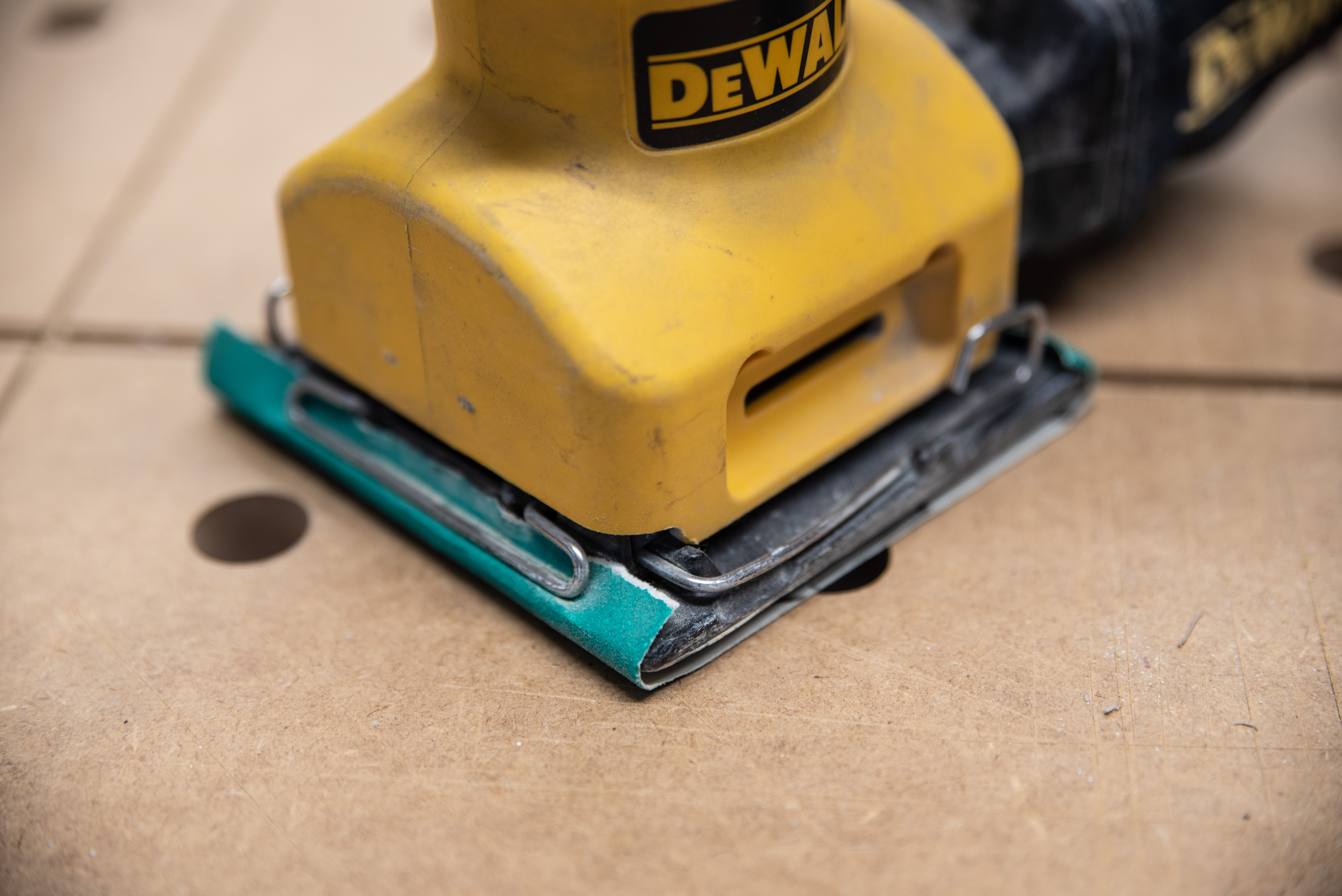
Stepping up a notch, we come to models designed for removing a lot of material and fast. Typically these will use a rotary or eccentric sanding motion. If you have a large compressor, for whatever reason, it's also worth considering air tools (such as those from Mirka) as they're more compact and less tiring to use for longer sessions. Since my compressor isn't beefy enough for sustained use with a sander (plus I'd like to be able to use them elsewhere) I've gone with electric, specifically a Festool RO125 FEQ. This is a geared eccentric sander that also has the ability to run in a rotary mode.
One key advantage to a sander like this is pure power, because it's a beefy unit that can mince through material. In the video you can see how it did in one pass, using the same grit paper, what the DeWalt random orbital sander managed in 3-4. The key advantage there for me is working with metals. I love using aluminium in my mods, because it's a great material to work with and it looks fantastic when sanded smooth, the issue there though is it takes a long time as you have to move through a lot of grits. To achieve a smooth finish, typically I would go 180 -> 240 -> 300 -> 500 -> 800 -> 1000 -> 1500 hard-paper grits followed by 500 -> 1000 -> 2000 -> 4000 soft pads. Now it may just be me thinking this, but that's a lot of steps, and if you're finishing, say, 10+ panels it's going to take quite a while. Having a powerful sander that can reduce each of those steps to just a couple minutes can make all the difference sometimes.
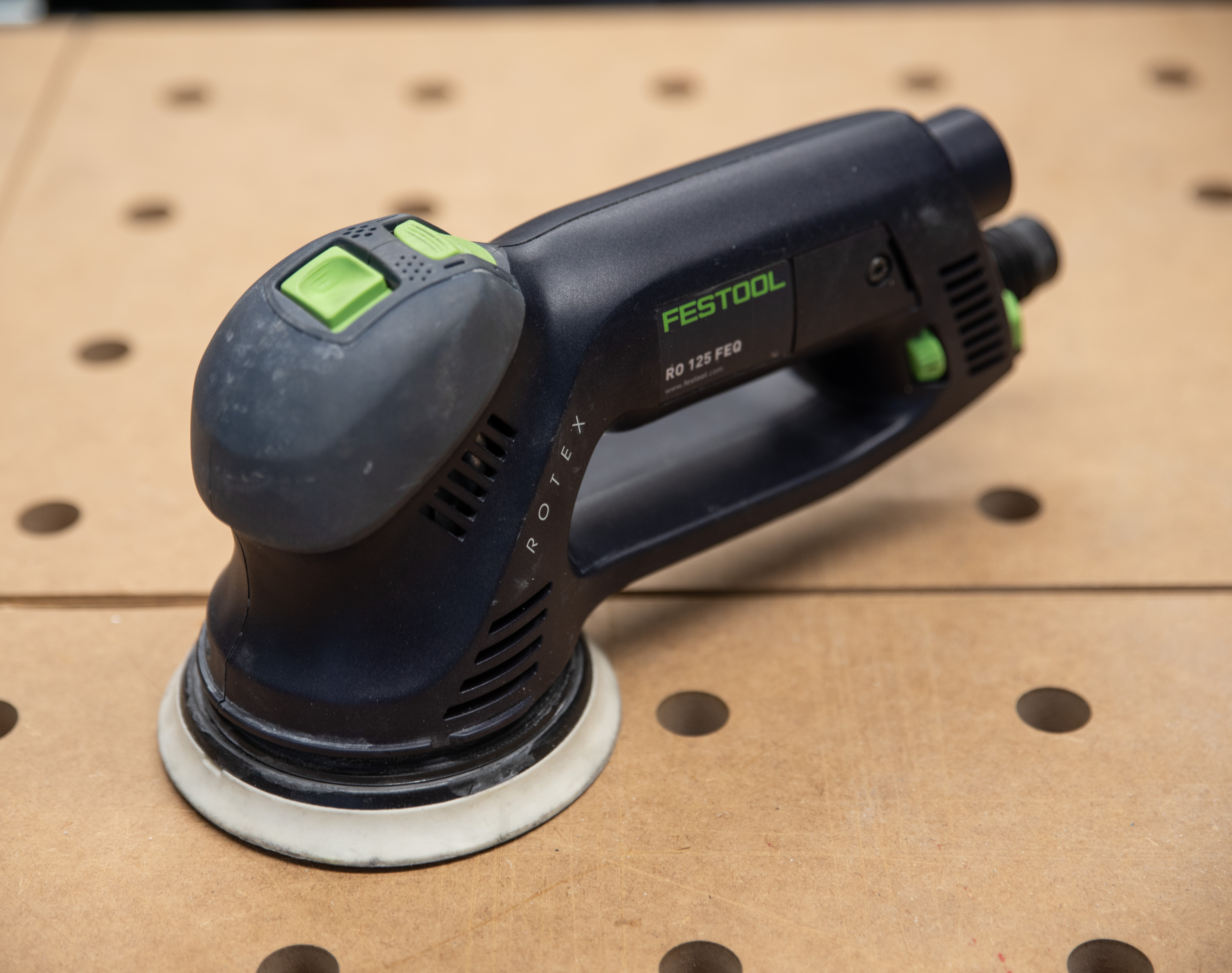
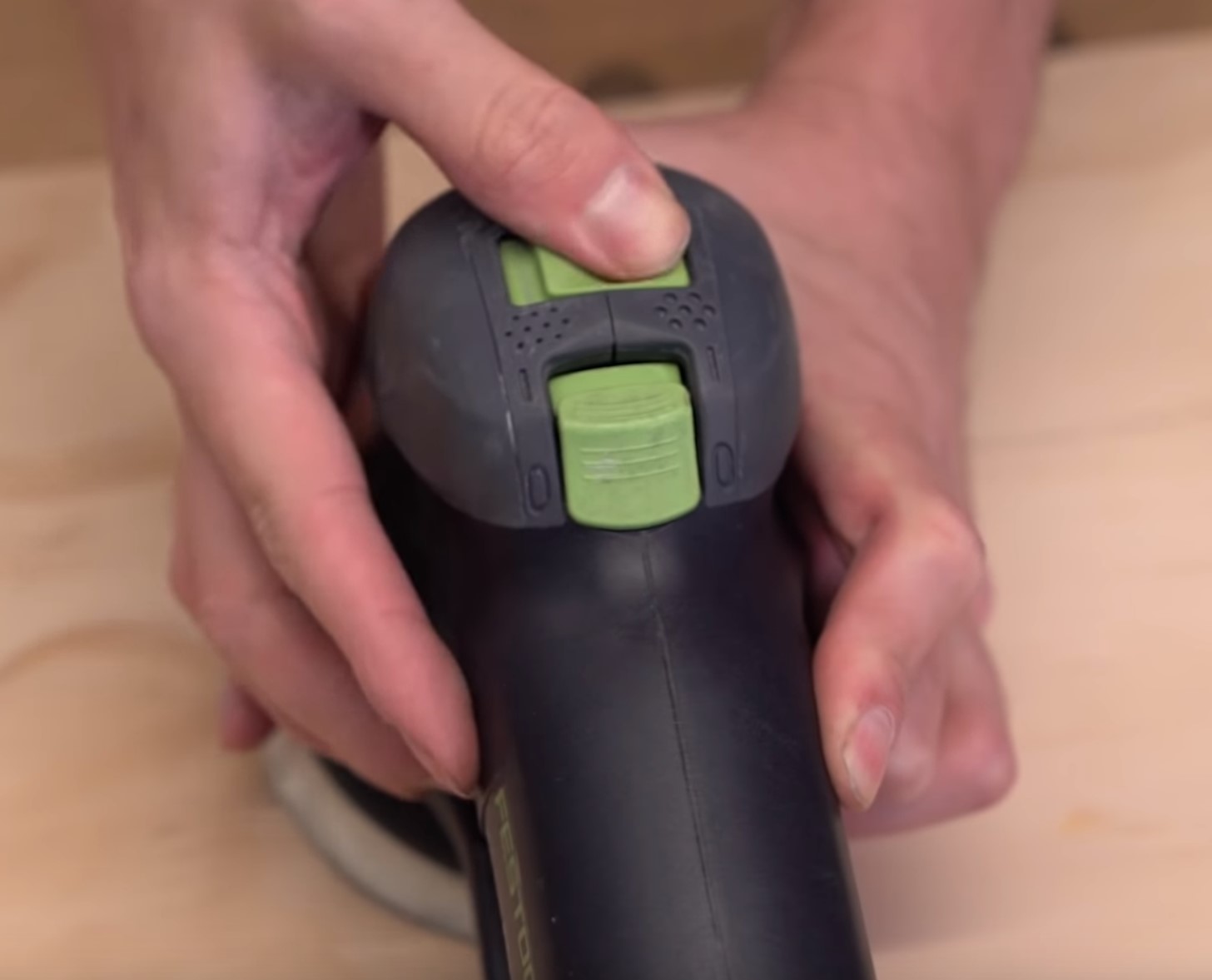
Another worthwhile advantage is having both eccentric and rotary motion on tap, as this is fantastic for polishing. Typically you'll want to use the eccentric motion for hard sanding pads. It tends to be useful for finer material removal as rotary is more aggressive. However, soft pads will not only perform better when used in rotary motion, but they'll last longer, too. Additionally, polishing sponges/rags really need to be used in rotary to be effective. Having both of these options in one device makes the machine considerably more useful. As with the delta sander, the RO125 also comes with variable speed, full dust extraction support and a modular cable.

MSI MPG Velox 100R Chassis Review
October 14 2021 | 15:04

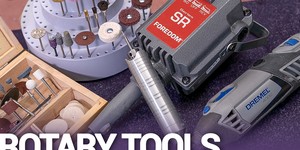

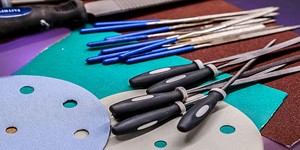




Want to comment? Please log in.